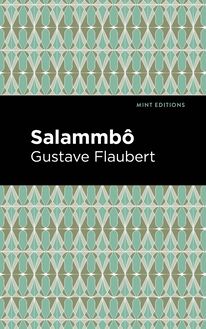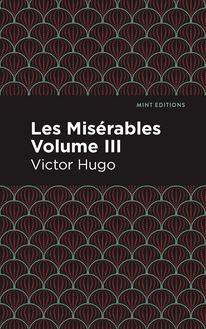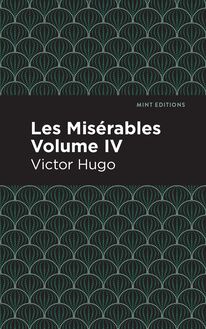-
 Univers
Univers
-
 Ebooks
Ebooks
-
 Livres audio
Livres audio
-
 Presse
Presse
-
 Podcasts
Podcasts
-
 BD
BD
-
 Documents
Documents
-
- Cours
- Révisions
- Ressources pédagogiques
- Sciences de l’éducation
- Manuels scolaires
- Langues
- Travaux de classe
- Annales de BEP
- Etudes supérieures
- Maternelle et primaire
- Fiches de lecture
- Orientation scolaire
- Méthodologie
- Corrigés de devoir
- Annales d’examens et concours
- Annales du bac
- Annales du brevet
- Rapports de stage
La lecture à portée de main
Vous pourrez modifier la taille du texte de cet ouvrage
Découvre YouScribe en t'inscrivant gratuitement
Je m'inscrisDécouvre YouScribe en t'inscrivant gratuitement
Je m'inscrisEn savoir plus
Vous pourrez modifier la taille du texte de cet ouvrage
En savoir plus

Description
Set near and on Lake Ontario in the 1750s, The Pathfinder is chronologically the third installation of James Fenimore Cooper’s gripping Leatherstocking Tales. While the French Indian War rages on, Mabel, a nineteen-year-old young woman, is travelling to see her father, Sergeant Thomas Dunham. Accompanied by her uncle and two Native Americans, Smashing Arrows and June Dew, Mabel treks through the dense forests of upstate New York, towards her father’s home on Lake Ontario. While the group approaches a river, they meet up with Natty Bumppo, a middle-aged hero who has earned the nickname “Pathfinder”, and his friends, Chingachgook and Jasper. The two parties agree to combine, because the forest has become a perilous place amid the French Indian War. As they continue their journey to Thomas Dunham’s house, an English castle on the shore of Lake Ontario, the group faces narrow escapes, dangerous terrain, and the consequences of the French Indian War. Though, even when they arrive at the home of Sergeant Thomas Dunham, their journey has barely begun. While he was glad to reunite with his daughter, Dunham’s true motivation for her arrival was his hopes to marry her to Pathfinder. However, Mabel has already fallen in love with Jasper. Still, in efforts to manipulate the couple, Dunham tells Pathfinder that Mabel wishes to marry him. While this love triangle persists, the group is challenged with battles, treason and the collateral damage of each.
Based off of James Fenimore Cooper’s real-life experience as a shipman, The Pathfinder explores a nautical setting, along with the pioneer setting of its predecessors. Placed chronologically third in the narrative of the Leatherstocking Tales, James Fenimore Cooper’s The Pathfinder combines adventure and romance. With a picturesque setting, treachery, love, and adventure, The Pathfinder remains to be a captivating narrative that explores new characters in the acclaimed series.
Now featuring a new, eye-catching cover design, and a modern, readable font, this edition of The Pathfinder by James Fenimore Cooper is an American classic that entertains with stories of passion and adventure, while allowing readers to immerse themselves in the climate and terrain of early America.
Sujets
Informations
| Publié par | Mint Editions |
| Date de parution | 05 janvier 2021 |
| Nombre de lectures | 0 |
| EAN13 | 9781513274461 |
| Langue | English |
| Poids de l'ouvrage | 3 Mo |
Informations légales : prix de location à la page 0,0500€. Cette information est donnée uniquement à titre indicatif conformément à la législation en vigueur.
Extrait
The Pathfinder
James Fenimore Cooper
The Pathfinder was first published in 1840.
This edition published by Mint Editions 2021.
ISBN 9781513269467 | E-ISBN 9781513274461
Published by Mint Editions®
minteditionbooks .com
Publishing Director: Jennifer Newens
Design & Production: Rachel Lopez Metzger
Typesetting: Westchester Publishing Services
C ONTENTS I II III IV V VI VII VIII IX X XI XII XIII XIV XV XVI XVII XVIII XIX XX XXI XXII XXIII XIV XXV XXVI XXVII XXVIII XXIX XXX
I
The turf shall be my fragrant shrine;
My temple, Lord! that arch of thine;
My censer’s breath the mountain airs,
And silent thoughts my only prayers.
— M OORE
T he sublimity connected with vastness is familiar to every eye. The most abstruse, the most far-reaching, perhaps the most chastened of the poet’s thoughts, crowd on the imagination as he gazes into the depths of the illimitable void. The expanse of the ocean is seldom seen by the novice with indifference; and the mind, even in the obscurity of night, finds a parallel to that grandeur, which seems inseparable from images that the senses cannot compass. With feelings akin to this admiration and awe—the offspring of sublimity—were the different characters with which the action of this tale must open, gazing on the scene before them. Four persons in all,—two of each sex,—they had managed to ascend a pile of trees, that had been uptorn by a tempest, to catch a view of the objects that surrounded them. It is still the practice of the country to call these spots wind-rows. By letting in the light of heaven upon the dark and damp recesses of the wood, they form a sort of oases in the solemn obscurity of the virgin forests of America. The particular wind-row of which we are writing lay on the brow of a gentle acclivity; and, though small, it had opened the way for an extensive view to those who might occupy its upper margin, a rare occurrence to the traveller in the woods. Philosophy has not yet determined the nature of the power that so often lays desolate spots of this description; some ascribing it to the whirlwinds which produce waterspouts on the ocean, while others again impute it to sudden and violent passages of streams of the electric fluid; but the effects in the woods are familiar to all. On the upper margin of the opening, the viewless influence had piled tree on tree, in such a manner as had not only enabled the two males of the party to ascend to an elevation of some thirty feet above the level of the earth, but, with a little care and encouragement, to induce their more timid companions to accompany them. The vast trunks which had been broken and driven by the force of the gust lay blended like jack-straws; while their branches, still exhaling the fragrance of withering leaves, were interlaced in a manner to afford sufficient support to the hands. One tree had been completely uprooted, and its lower end, filled with earth, had been cast uppermost, in a way to supply a sort of staging for the four adventurers, when they had gained the desired distance from the ground.
The reader is to anticipate none of the appliances of people of condition in the description of the personal appearances of the group in question. They were all wayfarers in the wilderness; and had they not been, neither their previous habits, nor their actual social positions, would have accustomed them to many of the luxuries of rank. Two of the party, indeed, a male and female, belonged to the native owners of the soil, being Indians of the well-known tribe of the Tuscaroras; while their companions were—a man, who bore about him the peculiarities of one who had passed his days on the ocean, and was, too, in a station little, if any, above that of a common mariner; and his female associate, who was a maiden of a class in no great degree superior to his own; though her youth, sweetness and countenance, and a modest, but spirited mien, lent that character of intellect and refinement which adds so much to the charm of beauty in the sex. On the present occasion, her full blue eye reflected the feeling of sublimity that the scene excited, and her pleasant face was beaming with the pensive expression with which all deep emotions, even though they bring the most grateful pleasure, shadow the countenances of the ingenuous and thoughtful.
And truly the scene was of a nature deeply to impress the imagination of the beholder. Towards the west, in which direction the faces of the party were turned, the eye ranged over an ocean of leaves, glorious and rich in the varied and lively verdure of a generous vegetation, and shaded by the luxuriant tints which belong to the forty-second degree of latitude. The elm with its graceful and weeping top, the rich varieties of the maple, most of the noble oaks of the American forest, with the broad-leaved linden known in the parlance of the country as the basswood, mingled their uppermost branches, forming one broad and seemingly interminable carpet of foliage which stretched away towards the setting sun, until it bounded the horizon, by blending with the clouds, as the waves and the sky meet at the base of the vault of heaven. Here and there, by some accident of the tempests, or by a caprice of nature, a trifling opening among these giant members of the forest permitted an inferior tree to struggle upward toward the light, and to lift its modest head nearly to a level with the surrounding surface of verdure. Of this class were the birch, a tree of some account in regions less favored, the quivering aspen, various generous nut-woods, and divers others which resembled the ignoble and vulgar, thrown by circumstances into the presence of the stately and great. Here and there, too, the tall straight trunk of the pine pierced the vast field, rising high above it, like some grand monument reared by art on a plain of leaves.
It was the vastness of the view, the nearly unbroken surface of verdure, that contained the principle of grandeur. The beauty was to be traced in the delicate tints, relieved by graduations of light and shade; while the solemn repose induced the feeling allied to awe.
“Uncle,” said the wondering, but pleased girl, addressing her male companion, whose arm she rather touched than leaned on, to steady her own light but firm footing, “this is like a view of the ocean you so much love!”
“So much for ignorance, and a girl’s fancy, Magnet,”—a term of affection the sailor often used in allusion to his niece’s personal attractions; “no one but a child would think of likening this handful of leaves to a look at the real Atlantic. You might seize all these tree-tops to Neptune’s jacket, and they would make no more than a nosegay for his bosom.”
“More fanciful than true, I think, uncle. Look thither; it must be miles on miles, and yet we see nothing but leaves! what could one behold, if looking at the ocean?”
“More!” returned the uncle, giving an impatient gesture with the elbow the other touched, for his arms were crossed, and the hands were thrust into the bosom of a vest of red cloth, a fashion of the times,—“more, Magnet! say, rather, what less? Where are your combing seas, your blue water, your rollers, your breakers, your whales, or your waterspouts, and your endless motion, in this bit of a forest, child?”
“And where are your tree-tops, your solemn silence, your fragrant leaves, and your beautiful green, uncle, on the ocean?”
“Tut, Magnet! if you understood the thing, you would know that green water is a sailor’s bane. He scarcely relishes a greenhorn less.”
“But green trees are a different thing. Hist! that sound is the air breathing among the leaves!”
“You should hear a nor-wester breathe, girl, if you fancy wind aloft. Now, where are your gales, and hurricanes, and trades, and levanters, and such like incidents, in this bit of a forest? And what fishes have you swimming beneath yonder tame surface?”
“That there have been tempests here, these signs around us plainly show; and beasts, if not fishes, are beneath those leaves.”
“I do not know that,” returned the uncle, with a sailor’s dogmatism. “They told us many stories at Albany of the wild animals we should fall in with, and yet we have seen nothing to frighten a seal. I doubt if any of your inland animals will compare with a low latitude shark.”
“See!” exclaimed the niece, who was more occupied with the sublimity and beauty of the “boundless wood” than with her uncle’s arguments; “yonder is a smoke curling over the tops of the trees—can it come from a house?”
“Ay, ay; there is a look of humanity in that smoke,” returned the old seaman, “which is worth a thousand trees. I must show it to Arrowhead, who may be running past a port without knowing it. It is probable there is a caboose where there is a smoke.”
As he concluded, the uncle drew a hand from his bosom, touched the male Indian, who was standing near him, lightly on the shoulder, and pointed out a thin line of vapor which was stealing slowly out of the wilderness of leaves, at a distance of about a mile, and was diffusing itself in almost imperceptible threads of humidity in the quivering atmosphere. The Tuscarora was one of those noble-looking warriors oftener met with among the aborigines of this continent a century since than to-day; and, while he had mingled sufficiently with the colonists to be familiar with their habits and even with their language, he had lost little, if any, of the wild grandeur and simple dignity of a chief. Between him and the old seaman the intercourse had been friendly, but distant; for the Indian had been too much accustomed to mingle with the officers of the different military posts he had frequented not to understand that his present companion was only a subordinate. So imposing, indeed, had been the quiet superiority of the Tuscarora’s reserve, that Charles Cap, for so was the seaman named, in his most dogmatical or facetious moments, had not ventured on familiarity in an intercours
-
 Univers
Univers
-
 Ebooks
Ebooks
-
 Livres audio
Livres audio
-
 Presse
Presse
-
 Podcasts
Podcasts
-
 BD
BD
-
 Documents
Documents
-
Jeunesse
-
Littérature
-
Ressources professionnelles
-
Santé et bien-être
-
Savoirs
-
Education
-
Loisirs et hobbies
-
Art, musique et cinéma
-
Actualité et débat de société
-
Jeunesse
-
Littérature
-
Ressources professionnelles
-
Santé et bien-être
-
Savoirs
-
Education
-
Loisirs et hobbies
-
Art, musique et cinéma
-
Actualité et débat de société
-
Actualités
-
Lifestyle
-
Presse jeunesse
-
Presse professionnelle
-
Pratique
-
Presse sportive
-
Presse internationale
-
Culture & Médias
-
Action et Aventures
-
Science-fiction et Fantasy
-
Société
-
Jeunesse
-
Littérature
-
Ressources professionnelles
-
Santé et bien-être
-
Savoirs
-
Education
-
Loisirs et hobbies
-
Art, musique et cinéma
-
Actualité et débat de société
- Cours
- Révisions
- Ressources pédagogiques
- Sciences de l’éducation
- Manuels scolaires
- Langues
- Travaux de classe
- Annales de BEP
- Etudes supérieures
- Maternelle et primaire
- Fiches de lecture
- Orientation scolaire
- Méthodologie
- Corrigés de devoir
- Annales d’examens et concours
- Annales du bac
- Annales du brevet
- Rapports de stage




















